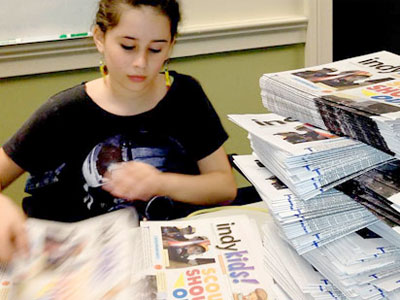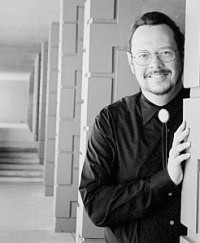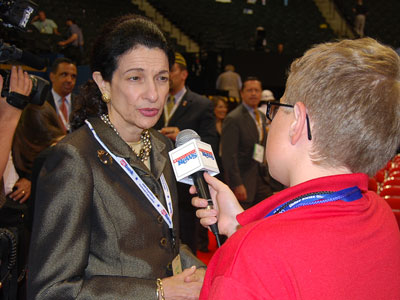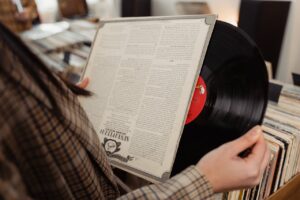Memo: To young journalists
When I was your age, I walked 20 miles through the snow just to write obituaries for a small-town newspaper.
Part of that statement is untrue. Consider it your first lesson: Skepticism.
Seriously, if you’ve just started your first newspaper job, especially at a major metropolitan daily, you were most likely hired because you are considered cheap and malleable.
I hate to break it to you. But I’m going to tell you a few things nobody else will, not in today’s newsrooms tamed by the Human Resources Department and political correctness. Take it for what it’s worth.
You may be very bright and know how to write code and produce multi-media. But you don’t know anything about being a journalist. Perhaps you’ve had your “self esteem” stroked all your life. So, no disrespect, but you don’t know anything. You don’t know what you don’t know. To all the mid-career people who have been pushed out or fear losing their jobs, you’re a threat. But your situation is tragic. You most likely will miss out on the experience, gained painfully and joyfully, that makes a capable veteran.
As a baby boomer, I am supposedly part of an infamously self-absorbed cohort, a bunch of navel-gazers who were told they were the “smartest generation in history,” and now we’re going to mooch off your low wages and student debt while you pay for our Social Security. The truth is rather different, at least for me. When I was starting out, youth was a distinct disadvantage. People were quite willing to tell me that I didn’t know anything. This started when I went to work on the ambulance with grizzled old (mid- and late-twenties) former combat medics from the Vietnam War. They didn’t want me there. I had to win their respect and they made doing so a trip through the inferno.
“If you have the gift
and are willing to
apply yourself to our calling,
you can become a gunslinger. “
As a young journalist, I did start out at a tiny daily, writing obits. The editor was willing to take a chance on me after I answered in the affirmative to his grumbled, “Can you spell?” I missed deadline once and after the dressing down I received, I never missed another deadline again. Later, he would say that in my first year I displayed the ability of a ten-year veteran, so I had something innate going for me. But I was young and that was a liability. I wanted to be at a metro from the day I walked in the door, but that was impossible — except, perhaps, if one were fortunate enough to have attended a top J-school. So it was five years before I could make that dream come true. In that time, I learned. I learned to write good ledes, write to length and on deadline. To never freeze. Where to find news and how to frame stories in compelling ways. My spelling became impeccable and my copy as clean as a Virgo’s bookshelf. I was blessed with editors who weren’t afraid to ask, “What does that mean?” I became an editor myself, then a department head. I didn’t just master editing, headline writing, layout and design, but a hundred little things that make the difference between a true journalist and a wanna-be hack.
Old newsrooms were full of fun and tradition, close to newspaper bars where, if you were worthy, you ran a tab (on in Denver, the wonderful old Denver Press Club). The business — I hate to use that term now — was years away from calamity. But these were also tremendously demanding places, especially the good newspapers, especially for younger journalists trying to keep up. For years, I was L’enfant terrible. When I became the business editor of the Dayton Daily News at 30, everyone else in the department was older than 40. Sure, I had a few moves to teach. But mostly, I learned from them — many had been former city editors who had fallen from grace and been sent to the Siberia of business. They were in bad odor with top management. “Have you ever fired anyone?” I was asked during the interviews (yes). But these wonderful journalists didn’t need firing. They needed leadership and an advocate. I mostly unchained them and the result was an award-winning business section. And I learned like hell. I was never under any illusion that I had their experience, seasoning and street smarts. In Dayton, I was fortunate again with bosses who demanded the highest standards — maddeningly so, sometimes. And the copy desk: This nest of greybeards that would quibble over the seemingly smallest piece of grammar. It wasn’t small, of course.
As a younger journalist, I encountered mammals of all kinds. There were the old guys on the police beat who had the deepest sources, but would nap away the afternoon after filing for the PM edition. Former pros that were past their prime, that had covered the same parade or school-board meeting one too many times. I’ll never end up like that, my smug young self thought. But there were men and women with decades of experience that showed in every paragraph they wrote, from distinguished beat reporters to nationally known critics and columnists. Just listening to one of them work the phones was a seminar in source development. Over the years, I also worked with some of the best people in photography, art and design. At newspapers such as the Charlotte Observer, the newsroom conversation was not dominated by talk of children or freak show America television shows, but journalism. In such an environment, one either learned or left. For me, to be treated as a peer by these accomplished veterans, genuinely, having earned it, will always be one of my proudest achievements.

When did time mow me down like an unfortunate jaywalker on the business side of a runaway garbage truck? Now I’m the old guy, although, alas, not nipping from the bottle in the desk. But the world has turned upside down. When I was starting out, where I am now was considered the prime of one’s career, and someone my age, experience and skills among the most valuable employees. At most places outside the best destination newspapers, this is no longer true.
I always loved to teach. I was coaching before the word became fashionable. So a few thoughts, if you’re still with me.
You don’t know anything.
But if you’re prepared to work, if you’re curious, rigorous, competitive and hold to high standards, you will learn. If you have the gift and are willing to apply yourself to our calling, you can become a gunslinger. Find a mentor, if you can, and leave your ego at the door. To be sure, this requires a healthy relationship that involves mutual respect and a comfort level. Although the value of old-style screaming and typewriter-throwing is underrated, it worked best in small doses. When I say you don’t know anything, it doesn’t mean you aren’t intelligent. So the best mentor-protege relationship is one that connects on a smart level, with a mentor who has something to offer.
With or without a mentor, absorb everything you can from the older journalists who’ve still got game. Drink in the traditions and best practices, make them your own, and God willing some day you can pass them on. Learning how to practice good journalism is not at odds with technical skills. You need both. Also understand that in many of today’s workplaces, you’ll be treated with kid gloves — you’re young! — but don’t believe it. You’re probably making much less than I did starting out — and you have student debt I could never have imagined. So mentor yourself, too. Be your own gruff old editor, your own pinched-faced, semicolon-picking copy desk. Never stop learning. I don’t know how we’ll pay for quality journalism in the 21st century, especially the kind that holds the powerful world of business to account. I do know, if you’re willing to walk this path, we need you as a business journalist.
Now, it’s time for my afternoon nap.











